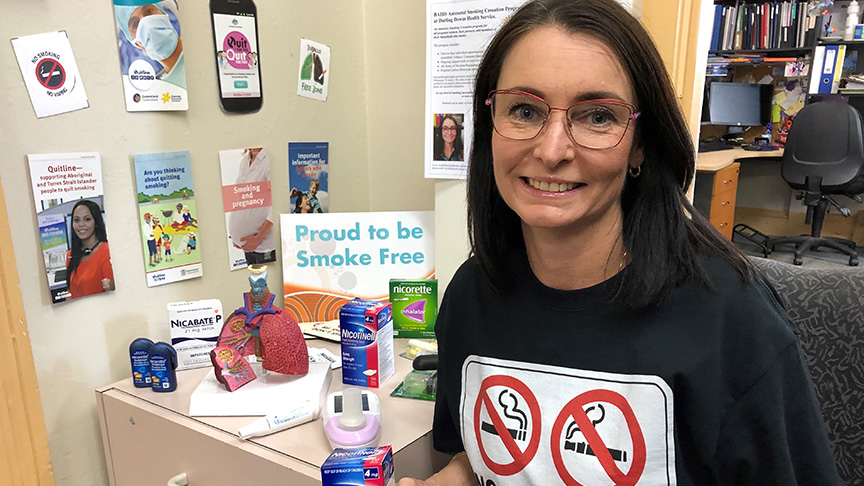
Download high resolution image [JPEG 2.1MB]
Teenagers across the region are learning more about the risks of electronic cigarettes, also known as vapes, which are often clouded in misconception.
Darling Downs Health is rolling out education programs for local high schools to highlight the health impacts to students.
Vaping devices heat up liquid, which usually contains nicotine, into a fine vapour for inhalation into the lungs.
Program Coordinator and Tobacco Treatment Specialist Johanna-Lee Bou-Samra said that vaping is becoming more common in young adults which is why it’s important they have access to accurate information.
“We started this program in November 2021 and have visited six local schools with plans for more later this year,” Ms Bou-Samra said.
“Before each presentation, the students are handed an anonymous survey to get them thinking about their own habits and the habits of their friends.
“My aim is to increase awareness and help guide health professionals, parents and educators about the best time to introduce education.”
The success of the vaping education program is a fitting reminder of the many smoke-free healthcare initiatives by Darling Downs Health, on World No-Tobacco Day.
World No-Tobacco Day on 31 May, 2022 is a chance to raise awareness of the harmful and deadly effects of tobacco use.
Mental Health Dual Diagnosis Coordinator/Tobacco Treatment Specialist Jenny Minchell said the region has come a long way in helping residents quit smoking over the past five years.
“One of our most significant achievements is the successful implementation of Smoking Cessation Clinical Pathways,” Ms Minchell said.
“The pathway is a tool used to screen smoking behaviour and guide support for those who temporarily cannot smoke or wish to reduce or quit smoking.”
Statistics show that more than 27,000 Smoking Pathways have been delivered across the Darling Downs since 2017, with 14,000 of those in Toowoomba.
Other milestones include the roll-out of the Bridging Antenatal Care, Indigenous Babies and Smoking Cessation (BAIBS) program, as well as numerous educational videos and fact sheets.
There’s also been a big focus on referring patients to specialised Quitline programs for telephone support and Nicotine Replacement Therapy.
For more information on quitting smoking visit www.quithq.initiatives.qld.gov.au or phone 13 78 48.